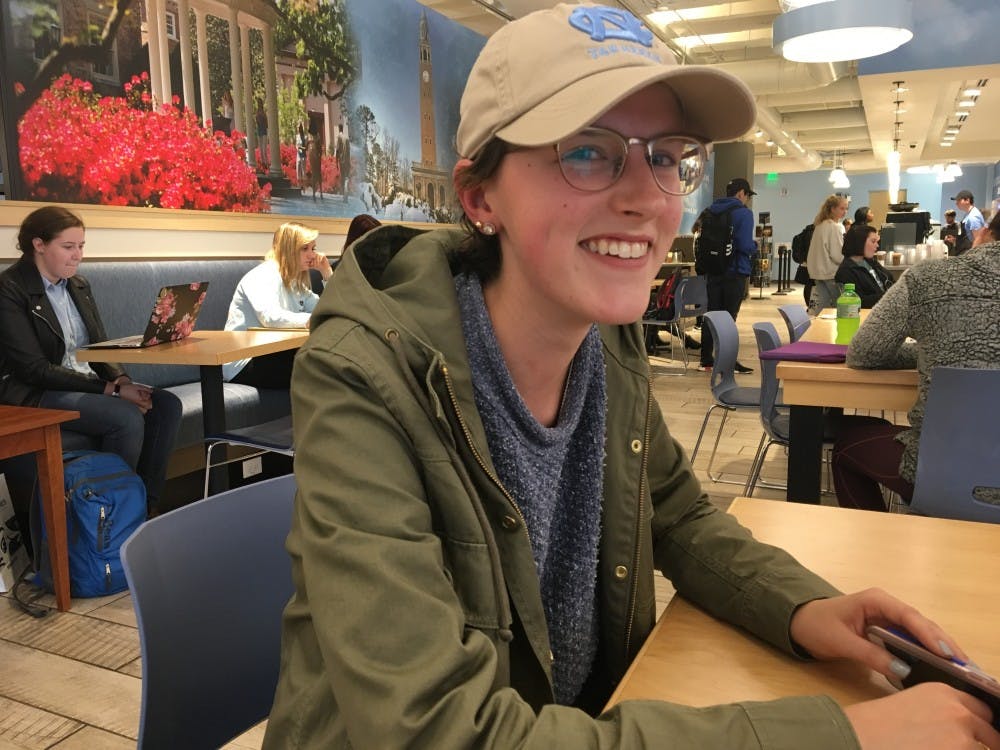July to March of Tanner's senior year were marked with various rounds of chemotherapy. She finished her final round March 8, 2018, rang a celebratory bell and left the hospital on March 12, an early present for her 18th birthday on March 22.
Now in remission, Tanner's cancer journey has impacted her academic plans. She is currently a chemistry major, although she believes that is subject to change. Through a philosophy minor or a Bachelor of Arts in psychology, she plans to introduce a humanities influence to her scientific studies.
“If you have all the science but no people skills, then you can’t effectively be a doctor,” she said. “You can understand exactly what’s going on in the patient’s body, but if you can’t relate that to them in a way that they understand, then they’re never going to be able to fully understand their diagnosis.”
Regardless of her major, Tanner knows she wants to be a pediatric oncologist.
Tanner’s mother Rebecca, a speech pathologist, knows her daughter has a wide range of both scientific and emotional strengths.
“She’s very intuitive for people’s needs. She can read people very well,” said Tanner. “She can figure out what their needs are. She’s very sensitive to that.”
Rebecca Tanner said that, like her engineer father, Tanner can always think through a specific situation logically and figure out what needs to be done.
Todd Austell, a chemistry professor who teaches Tanner's first-year seminar about nuclear chemistry, said he appreciates her willingness to share her experiences, such as when she showed her X-rays to the class.
“She busted out her smartphone when we were talking about diagnostic nuclear imaging for cancer,” Austell said. “She showed everybody the image and pointed out ‘Oh there’s the tumors, and there’s the tracer that they used in my kidneys.’”
Nuclear chemistry is pertinent to the discussion of cancer because principles of the discipline are involved in both diagnosing and treating the disease. Austell said Tanner helps connect the curriculum to everyday life.
“Nobody else has had the same experience she’s had,” Austell said. “But it’s been pretty cool because she can clearly sit there and keep her mouth shut, but it honestly wouldn’t have been as good of a discussion if we hadn’t had her in there to kind of drive home the point: ‘Hey, this is real. This isn’t something that happens to nobodies.’”
For Tanner, developing close relationships with many of her nurses, especially a woman who was also diagnosed with cancer when she was in her late twenties, helped her get through long stays in the hospital. Her faith community was also a strong source of support for her.
To get the day's news and headlines in your inbox each morning, sign up for our email newsletters.
The Sunday night before surgery, Tanner's whole church put hands on her, a religious practice where the entire community prays over somebody.
“Knowing that every single person in that church is supporting me and wants the best for me, that was really, really kind of eye-opening and refreshing,” she said. “Definitely a blessing. I couldn’t thank everyone in my church enough for all the prayers that they’ve prayed for me.”
Her mother knew they were supported by their church family and the community where Tanner was baptized and grew up.
“I would tell people when we were coming home from the hospital and then someone would text me and say, 'I’m bringing a meal by this night,'” Rebecca Tanner said.
Cancer put everything into perspective for Tanner. Prior to the diagnosis, she was more nitpicky and cared what people thought about her. She has since learned to stop stressing about the small things.
“I was so athletic before, and I prided myself so much in that, to the point where I literally could not walk by myself – I was in a wheelchair,” Tanner said. “I went from being in a wheelchair to being on crutches to using a walker. To be thankful that I am able to walk today is a blessing because a year ago I couldn’t.”
Ultimately, as she looks back on her journey with cancer and looks forward toward her plans for the future, Tanner is strengthened by her belief in God’s greater purpose.
“If it’s meant to be, it’ll be,” she said. “God has His plans, and if His plan for you is to survive cancer and become an oncologist and help other kids who are also battling cancer, that’s His plan for you. If His plan is you are not successful in your battle with cancer and you are a light to others through your end times, then that’s His plan for you too.”
university@dailytarheel.com




